Leipzig is a city of libraries and archives. The city archive has preserved deeds and documents of the City of Leipzig since the 12th century, and the university archive has been operating since the early 15th century. The university library and the city library were founded in the 16th century with important donations from the Leipzig monastic libraries. In 1912 the German National Library was founded in Leipzig. As a contribution to preserve and document the German cultural heritage it collects and documents all publications in German or about Germany.
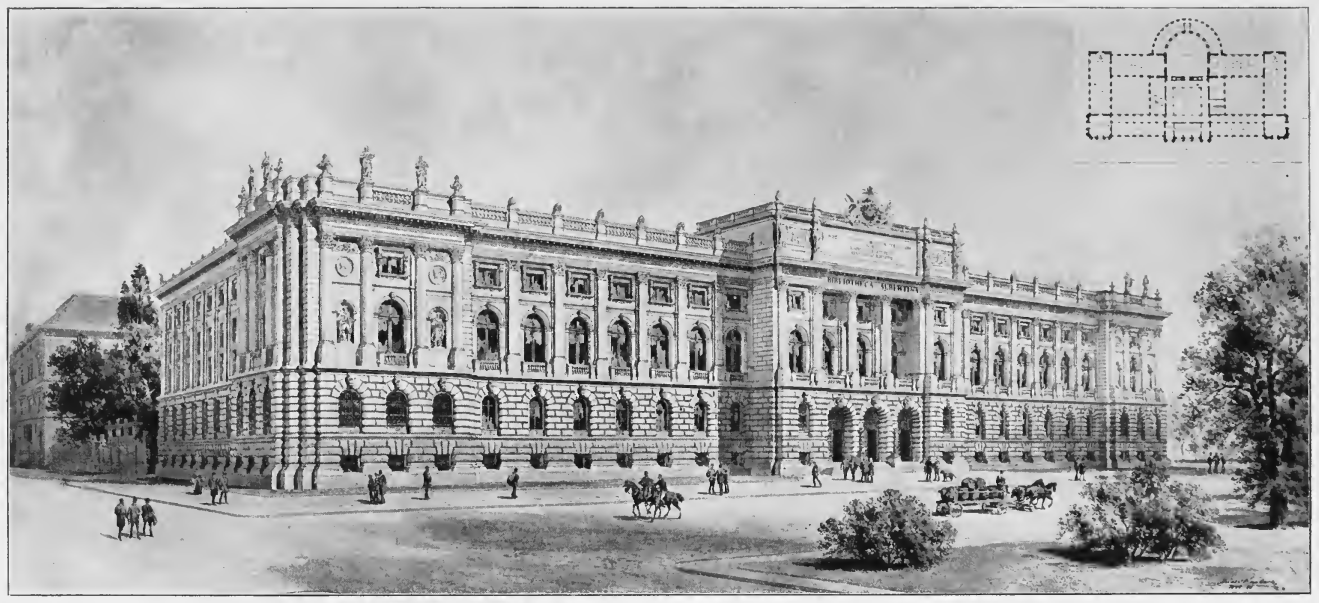
Leipzig university library, erected from 1887 till 1889. in Bruck: Arwed Rossbach und seine Bauten. (Berlin: Wasmuth 1904, S. 28), Public domain, via Internet Archive
Bibliotheca Albertina
Faculty libraries have existed since the university was established. A centralized university library was founded in the mid-16th century, following the Reformation and the subsequent dissolution of monasteries. Selected book collections from monasteries in Albertine Saxony were transferred to this library, forming the initial foundation of the Bibliotheca Albertina. Over time, the collection grew through further acquisitions and donations. Today, the University Library Leipzig (ULB) holds one of Germany’s largest collections of historical materials. In the 19th century, the university library became the central hub for providing literature to the university community. Today, it also serves as a significant venue for exhibitions and events.
read more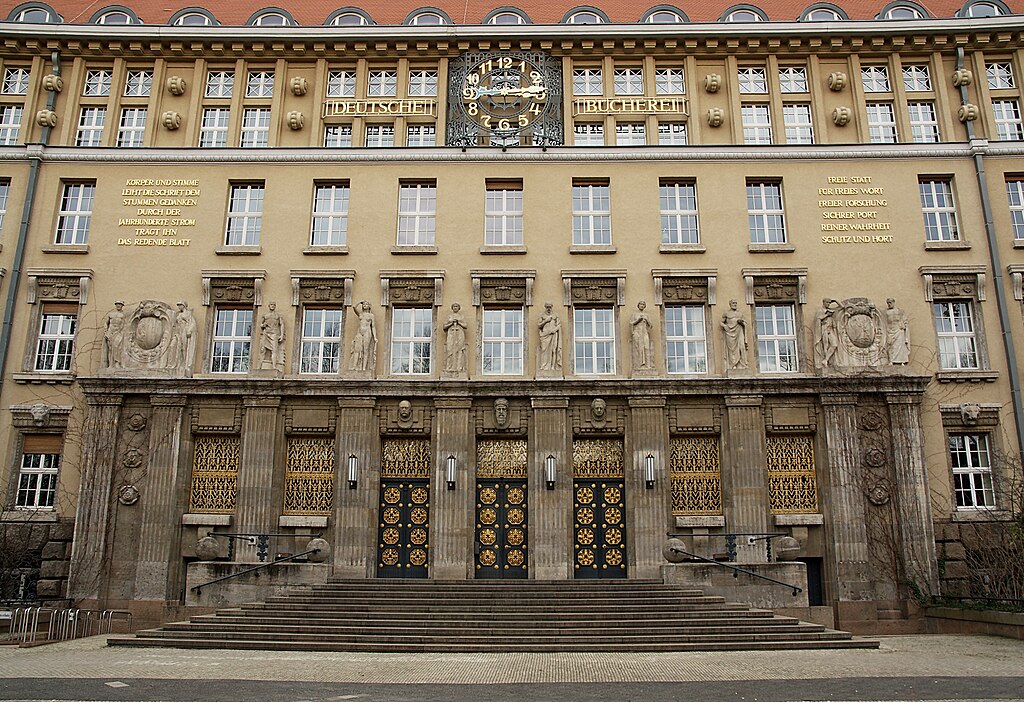
Facade of the German National Library. Foto: Concord, CC BY-SA 3.0, via Wikimedia Commons
German National Library
The German National Library is the central archive library for all media works in German from Germany and abroad. The building complex also houses the German Music Archive and the German Museum for Books and Writing. Hence, the German National Library is a library and archive, a museum, and a forum of public exchange. The German National Library is a place of freedom of information and expression, which aims to inspire and at the same time encourage critical thinking with a comprehensive program of events and hands-on activities.
read more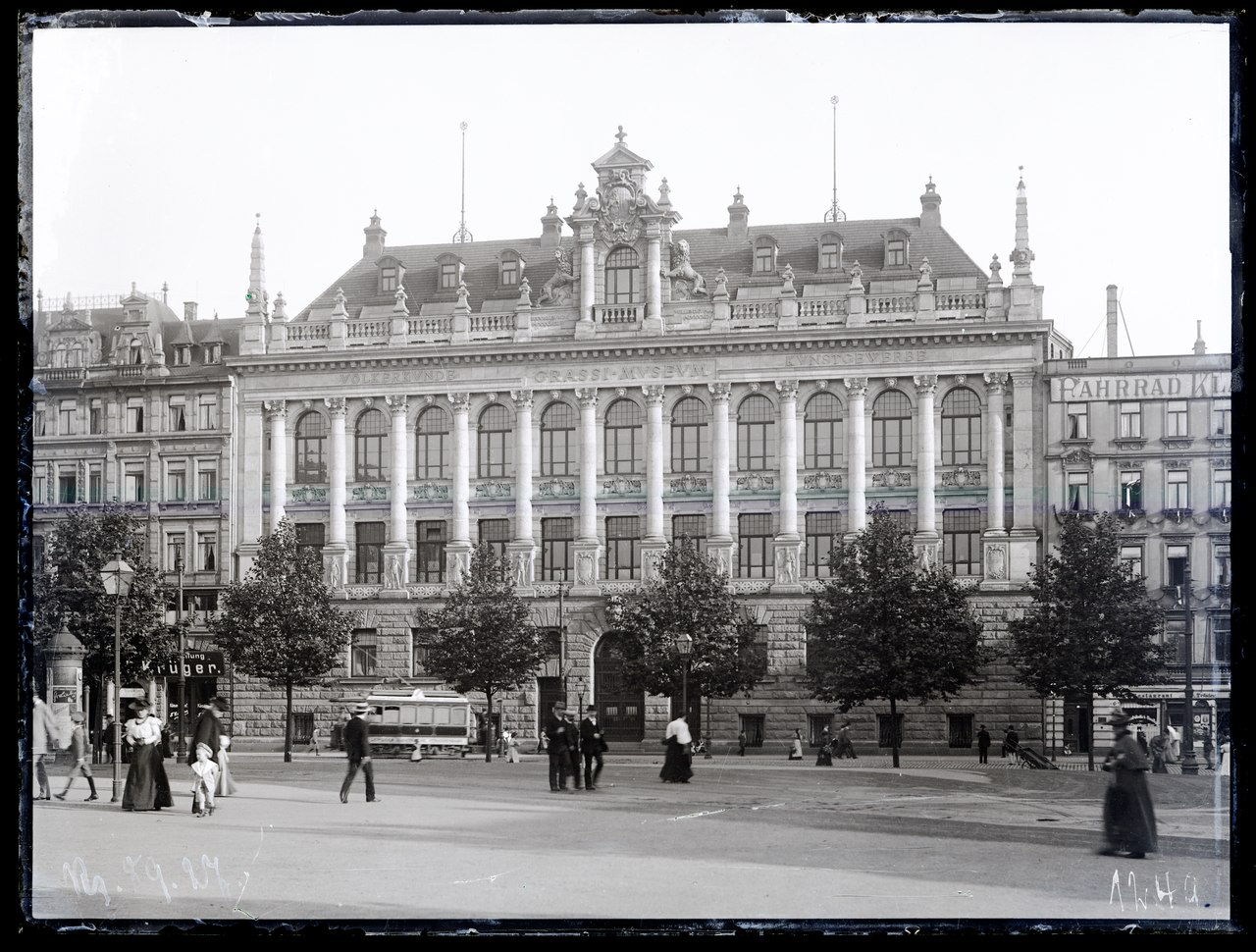
Königsplatz (now Wilhelm-Leuschner-Platz), Old Grassi Museum, around 1905, CC0, via Wikimedia Commons. Foto: Hermann Vogel (1854–1921)
Leipzig City Library
The origin of the Leipzig City Council Library and later the Leipzig City Library began from donations of 42 books from the estate of Dietrich von Bocksdorf (deceased 1466) and 253 books from town clerk and syndic Peter Freitag. By the end of the 19th century, the collection had grown to over 100,000 books, and the music department of the city library was established. By its 250th anniversary in 1927, the library had 155,000 volumes, including 660 early printed works (incunabula), and 1,702 manuscripts. Since 1991, the City Library has been housed in the old Grassi Museum at Wilhelm-Leuschner-Platz. In addition to providing an extensive media offering and free access to information, the Leipzig City Library enriches the cultural life of Leipzig with events for all age groups and serves as a place of encounter and joint learning.
read more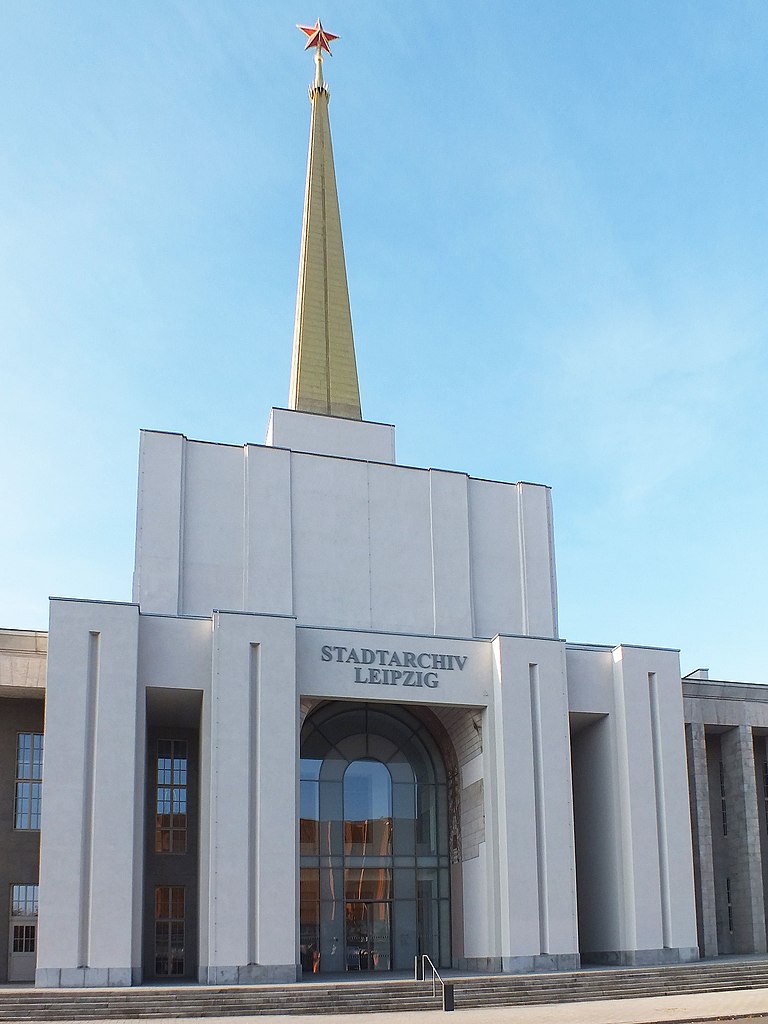
Martin Geisler, CC BY-SA 4., via Wikimedia Commons
Leipzig City Archive
The Leipzig City Archive is one of the largest communal archives in Germany. It offers comprehensive research services to its visitors, and invites them to “dive into the memory of the City”. Predominantly, it preserves information about the communal administration and material to track the evolution of the city. They are bundled into 500 collections that comprise records of various kinds. Presently, it is storing more than 4,000 certificates, 12,500 shelf meters of documents, books of accounting, newspapers, and pamphlets, 90,000 maps and plans, 350,000 photos and post cards, as well as collections on the history of Leipzig since the founding of the city in 1165 until its recent past.
read more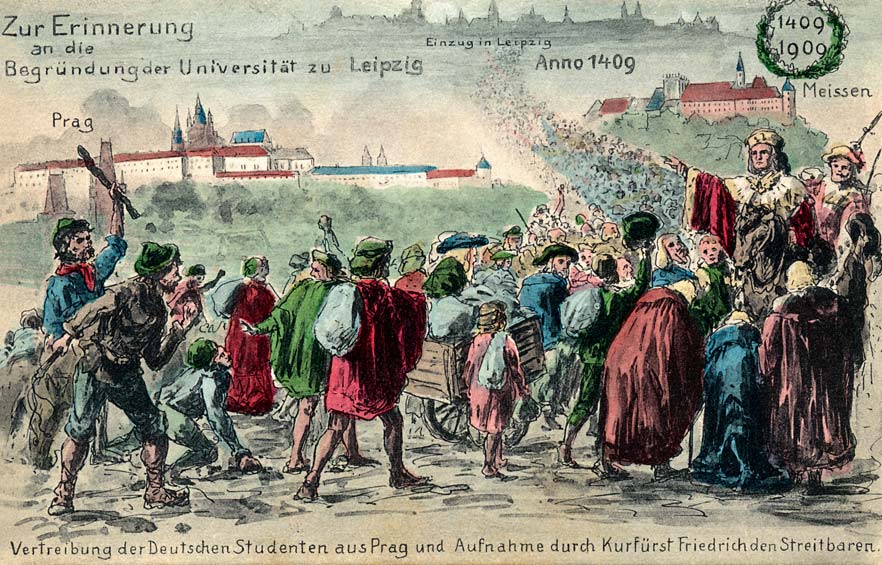
Painting to commemorate the 500th anniversary of Leipzig University. © Universitätsarchiv Leipzig
University Archive Leipzig
Leipzig University is the second oldest university in Germany, and the Leipzig University Archives are responsible for the preservation of the University’s records since its foundation in 1409. The staff of the University Archives support students, academics, users, family researchers, doctoral candidates, interested Leipzig citizens, and alumni of Leipzig University with on-site research, extensive databases, information on university history and archiving, as well as research opportunities on the Internet. Guided tours and a blog with information on anniversaries, media contributions, and numerous (virtual) exhibitions also serve the transfer of knowledge.
read more